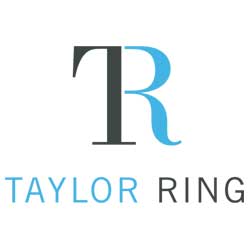Sexual Harassment at Work: What to Do if Your Harasser Is Your Ex
 Many companies have a non-fraternization policy among coworkers. Part of the policy is intended to keep employees focused on work. If you’re not wasting company time getting sidetracked with business hour flirtations and long lunches, more gets done and more money gets made. Another reason has to do with romantic relationships between employees that sour and affect office dynamics.
Many companies have a non-fraternization policy among coworkers. Part of the policy is intended to keep employees focused on work. If you’re not wasting company time getting sidetracked with business hour flirtations and long lunches, more gets done and more money gets made. Another reason has to do with romantic relationships between employees that sour and affect office dynamics.
Office romances that end badly can turn into a nightmare both for human resources and for one or both parties to the relationship. But know that just because you used to be a couple, there is no excuse for sexual harassment from your ex.
Situations that may lead to harassing behavior include:
- One-sided romantic interest in a coworker
- Superior-subordinate relationships where the power dynamic is uneven
- One partner dating another coworker after a breakup
- Casual dating that can lead to sexual harassment and stalking
- Sexual relationships that create leverage for one party once it ends
Then there’s the issue of another employee learning that you’re having an office romance and holding it over your head to get something he or she wants. This could very well include quid pro quo harassment, which could place you in the position of feeling trapped into providing sexual favors to save your job.
How do I prove I’m being sexually harassed at work?
If your company has a human resources department (HR) with an open door policy that makes workers feel safe coming in to report problems, take the proper steps to file a complaint against your ex or anyone else in the office who is creating a hostile workplace by sexually harassing you.
Beyond that, you can:
- Save any notes, emails, text messages, voicemails, photos, videos, or other harassing communications
- Document each harassing act and all attempts to end the harassment
- Keep records of all communications with supervisors and HR complaining of the problematic behavior, requesting help, and any failure on the part of your employer to take corrective action
- Obtain a copy of your company’s employee handbook or other written sexual harassment policies
- Make a list of any witnesses to each instance of sexual harassment who can offer testimony
- Catalog any expenses related to your ordeal such as psychological counseling
Minimizing workplace sexual harassment after a breakup
Whether or not employers enact no-dating policies, it doesn’t guarantee that a romantic relationship at work won’t begin and eventually become problematic for you. In the event that should happen, there are things your employer can do to minimize the fallout and help shield you from harassment.
- Putting some space between the employees who have ended their relationship. If you have enough office space to change someone’s work area, moving one of the employees to another part of the building will help create a buffer until the newness of the breakup passes. If one of their roles can be performed remotely, allowing someone to work from home may be an even better option to minimize the likelihood for office disruptions.
- Making it clear to all employees that any workplace sexual harassment will be dealt with swiftly, and could include termination.
- Holding mandatory sexual harassment training that includes laying out the standards of behavior expected of all employees, regardless of status within the company or relationship to one another.
- Providing a mediation and/or counseling service to employees who can work out their differences, come to an understanding and agree on how to proceed with a working relationship amongst the fallout of a breakup.
You should be able to continue to do your job without interference after a romantic relationship with a coworker has ended. Unfortunately, hard feelings can get in the way and create an uncomfortable work environment in which you spend your days. The Los Angeles workplace sexual harassment attorneys at Taylor & Ring can help you return things to normal by protecting your right to work in a safe environment free from intimidation or nuisance. To seek advice from a knowledgeable member of our legal team, schedule your free consultation by calling us at 310-209-4100, or we invite you to reach out to us through our contact page to tell us your story.

Serving clients throughout the Greater Los Angeles and Southern California area, we represent victims in a variety of civil litigation cases. If you or a loved one has been injured, turn to an experienced Los Angeles personal injury or sexual assault lawyer.
Find out more about Taylor & Ring.

